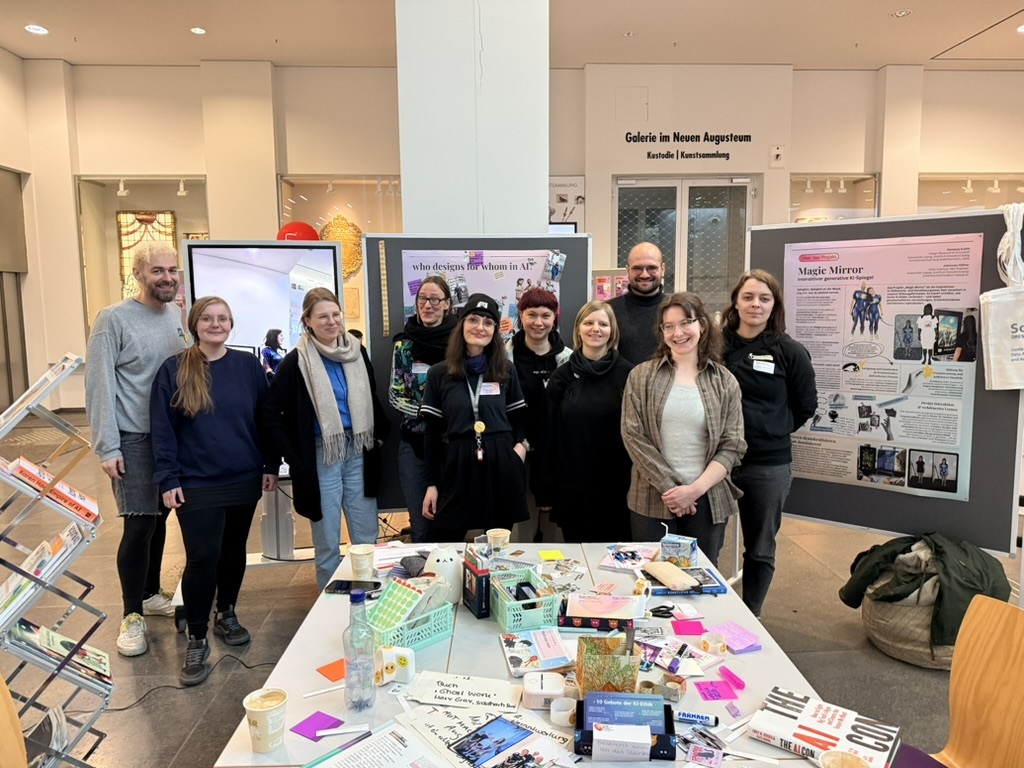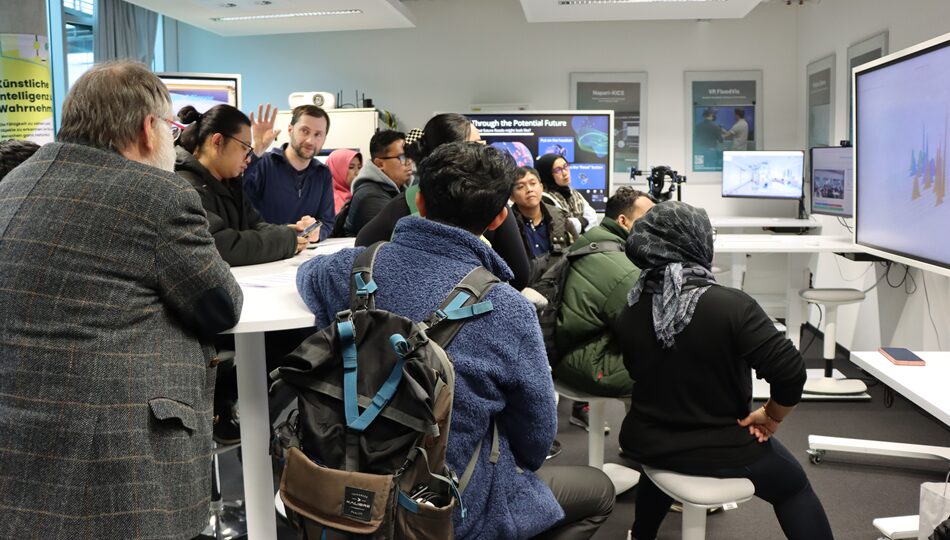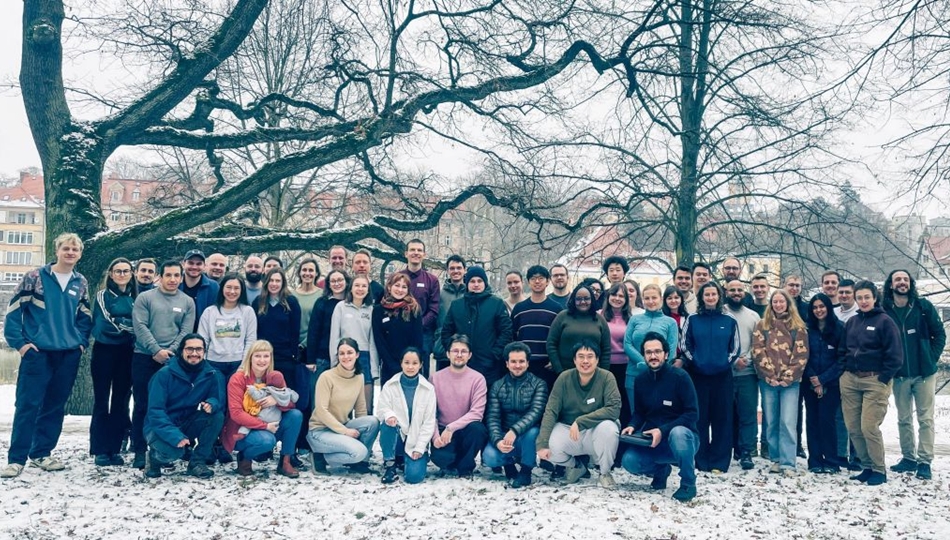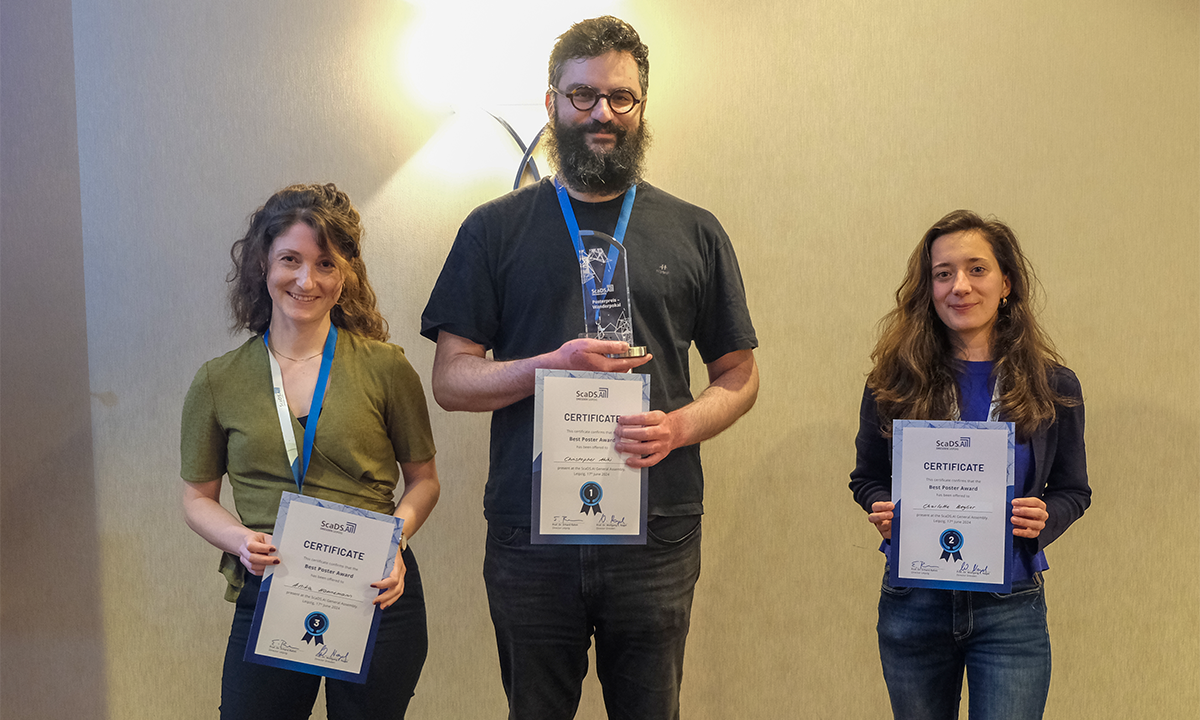
June 20, 2024
General Assembly with the 1st Best PhD Poster Award

On Monday, June 17, the quarterly ScaDS.AI General Assembly took place in Leipzig. After colleagues from both locations had met in Dresden in March, around 160 ScaDS.AI members came together for the second meeting of 2024. As a novel annual hightlight, prizes were awarded for the best doctoral posters.
Scientific Presentations and Breakouts
The event was opened with a warm welcome by the ScaDS.AI Directors Prof. Wolfgang E. Nagel and Prof. Erhard Rahm. Next, an invited presentation on the AI junior research group GAIN (Graphs in Artificial Intelligence and Neural Networks) was given by its head Dr. Josephine Thomas from the University of Kassel.
After some coffee, the audience reconvened for first talks by ScaDS.AI colleagues. Dr. Josefine Umlauft started with an overview of her topic area Earth & Environmental Sciences and Jun.-Prof. Clara Schoeder discussed Artificial Intelligence in Therapeutic Protein Design. Dr. Jan-Niklas Eckardt then spoke about AI for Diagnostics and Risk Stratification in Hematology, before Markus Bauer reported on current trends and future perspectives of AI for Prostate Cancer Histopathology.
The next session introduced four new AI professorships at TUD Dresden to the audience:
- Scalable Software Architectures for Data Analytics (Prof. Michael Färber)
- Knowledge-Based Artificial Intelligence (Prof. Simon Razniewski)
- Data Science (Prof. Jakob Runge)
- Machine Learning for Spatial Understanding (Prof. Martin Weigert)
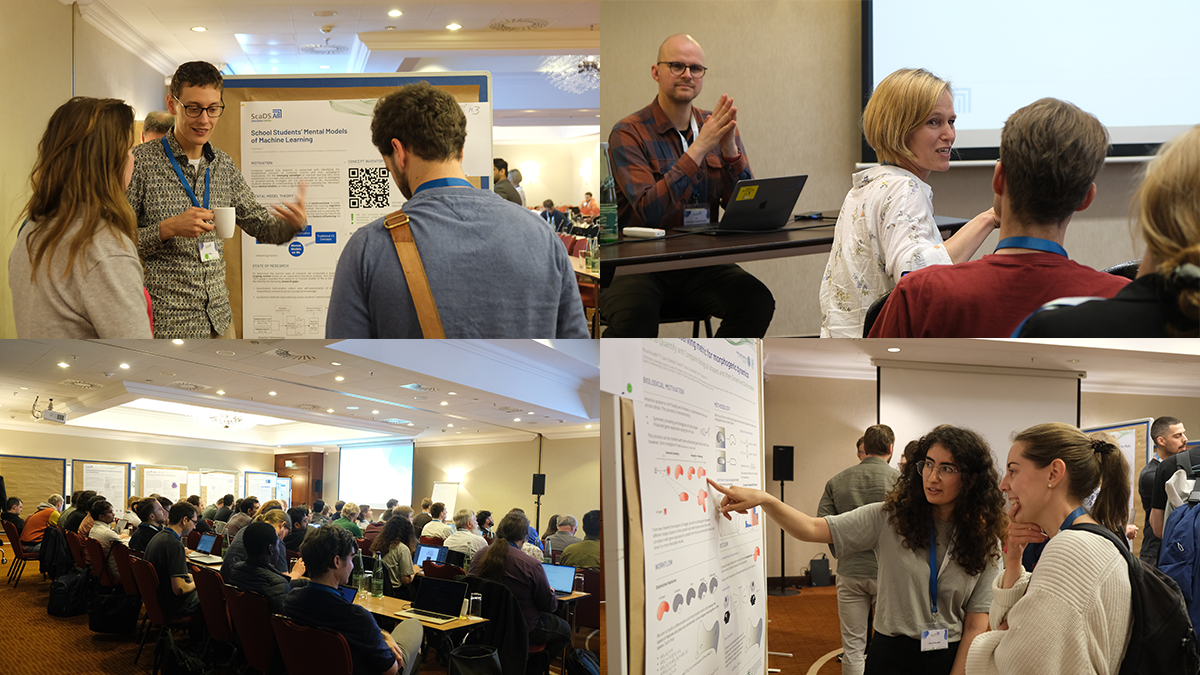
Another break provided a welcome opportunity for exchange and discussion, before breakout sessions allowed for a deeper dive into topics of Earth & Environmental Sciences, Engineering and Business, and Responsible AI until the well-deserved lunch. A later PI session rounded off the set of breakouts in the program.
Poster Session and 2024 Best PhD Posters
In the afternoon, 30 PhD students presented their ongoing thesis work during a poster session, thereby competing for a novel annual ScaDS.AI award for the best PhD poster. It was determined by combining single votes of all ScaDS.AI members present and an equal total of votes by a 12-member jury of professors and postdocs, cast until the award ceremony. A careful examination of the posters and engaged conversations with their presenters yield the following, very tight result of the best three posters (distinct by one vote only):
- Christopher Akiki: The BigScience ROOTS Corpus: A 1.6TB Composite Multilingual Dataset
- Charlotte Beylier: Revealing the Learning Process in Reinforcement Learning Agents Through Attention-Oriented Metrics
- Anika Hannemann: Navigating the Zoo of Privacy-Enhancing Technologies for Distributed Learning
Accordingly, this time the trophy for the best poster went to Leipzig. Congratulations to all three winners!
Overall, it was a real delight to experience the lively atmosphere during the poster session. The session organizers remain very grateful to all poster authors for all of their efforts, including their valuable cooperation in preparing and submitting their posters as well as in the handling onsite. We are therefore already looking forward to further eye-catchers at the next instance – and, of course, where the challenge cup will move to next time.

